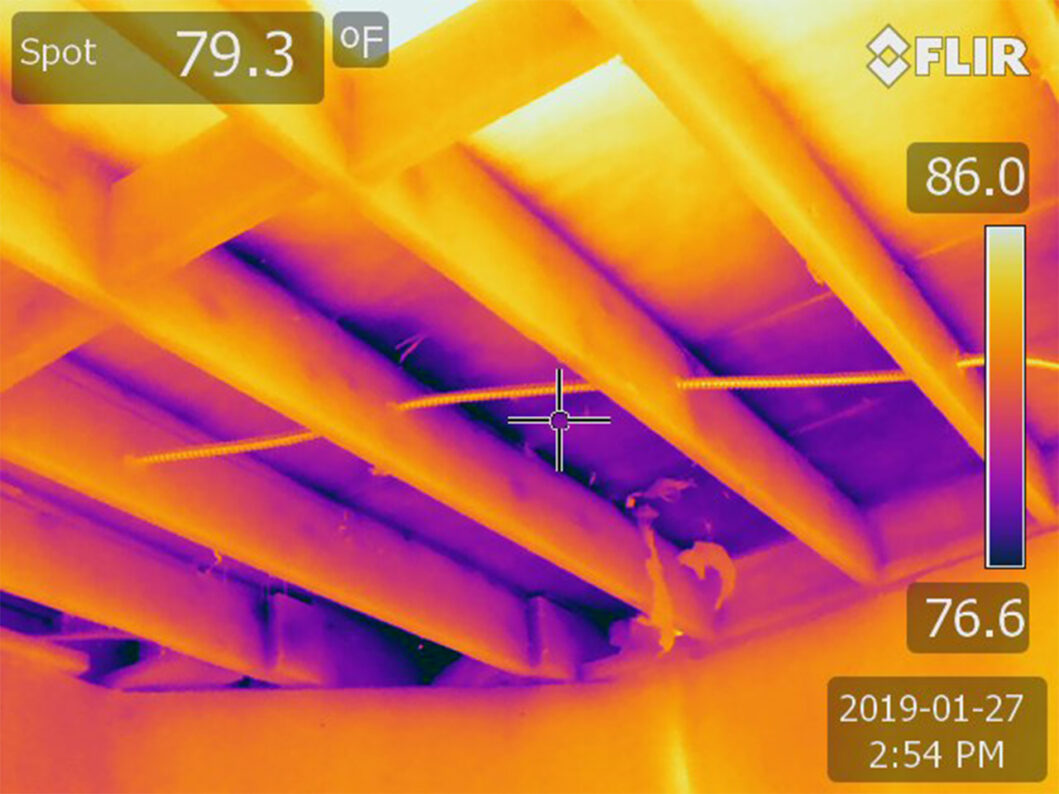Leak Detection Using an Infrared Camera
Living in Los Angeles there’s one thing that you can count on and that’s a mild winter. Well, not including the last winter we experienced of 2019. We received more rainfall that I can ever remember living in California. So with the rain came leaks into our homes and buildings. As a water intrusion company, we were extremely busy. Something else that was busy was our infrared cameras. You see, looking for leaks within walls or, Leak Detection Using an Infrared Camera is essential.
Does and infrared camera see through walls for leaks?
Thermography, or the use of an infrared camera to find water intrusion or leaks, exists on the surface level. That means, when we’re looking for leaks, the camera can only detect temperature differences on the surface. Infrared cameras cannot see into walls. However, the temperatures taken from surface materials will sometimes allows up to more or less guess as to whats within a wall cavity.
Another misnomer is that an infrared camera can find mold. That is absolutely not the case. Leak Detection Using an Infrared Camera is just that, leak detection. Mold detection requires special equipment and testing. Furthermore, when you test mold the samples must be sent to a lab for analyzation. Whereas, with infrared, it’s more like an X-ray. The results are immediate.
Level III thermographers in Los Angeles
As a level III Thermographer, we truly understand the science behind the use of infrared in water leak detection. As a matter of fact, there is no higher certification than the level III thermographer. Here in Los Angeles, there are only a handful of us with this certification. For those of you who require a professional for your Leak Detection Using an Infrared Camera, the level III operator is who you want. It’s not that the other guys who have infrared cameras can’t do the job. Not at all… its just a good idea to have a person who is qualified on paper. In fact, the level III certification is extremely difficult to achieve. For me, it was more difficult than acquiring my California General Contractors License.

